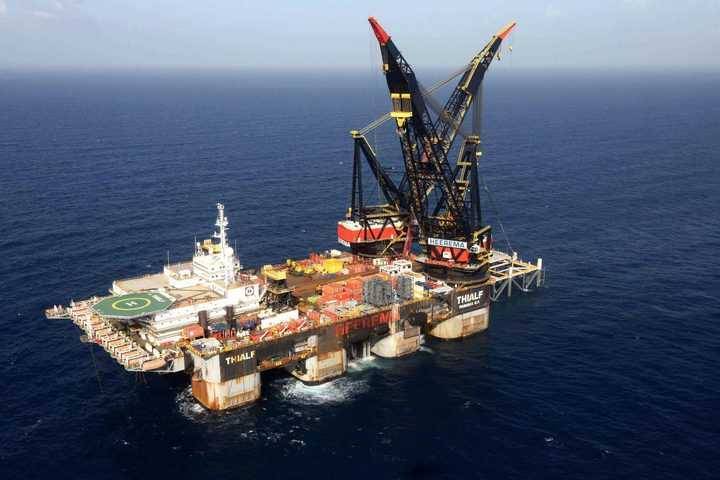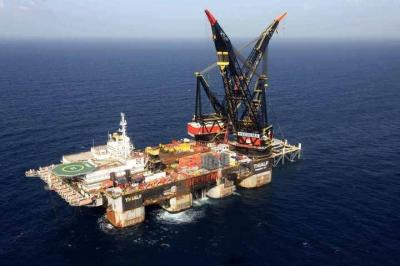In unfortunate circumstances for Lebanon, obstacles continue to arise in front of any potential relief that could contribute to alleviating its economic and financial crisis, including the suspension of exploration and drilling for gas in its territorial waters. Recently, TotalEnergies refrained from signing contracts for the discovery and extraction of gas and oil from Blocks 8 and 10 on February 16, following prolonged negotiations with the Ministry of Energy and Water, which involved time-wasting tactics from the French company, according to "An-Nahar."
Energy and Water Minister Walid Fayyad is attempting to navigate this sensitive issue, which the Lebanese people have pinned great hopes on, by preparing a new terms of reference to attract new companies with reasonable timelines and acceptable conditions while preserving Lebanon's right to its oil wealth. However, there are questions regarding the behavior of the French company, whose initial enthusiasm since engaging in the oil exploration project in Lebanon's waters in 2018 has devolved into hesitation and procrastination, culminating in its recent withdrawal.
It is noteworthy that Block 9, where drilling activities were announced to have concluded on October 13, 2023, has not yet provided its technical report or any scientific understanding of its geological nature while the well remains under its control. Previously, Block 9 was described as promising due to the alignment of geological and geophysical layers with the Israeli Karish field, which has gas reserves of 1.75 trillion cubic feet. The Petroleum Sector Management Authority—Ministry of Energy and Water indicated on October 20, 2023, that after completing drilling activities for the Kana 1/31 exploratory well in Block 9, and after gathering data and samples, they are awaiting the detailed technical report prepared by TotalEnergies. Despite not discovering hydrocarbons from this well, the data and samples obtained might still offer hope and positive information for continuing exploration in Block 9 and surrounding blocks.
What are the intentions of the French company? In this context, oil and gas specialist Aboud Zahir states that the contract term with the company for Block 9 expires in May 2025, with a six-month deadline for submitting the final report after drilling, which aligns with April 2024. However, the company's reluctance to hand over Block 9 to the Lebanese state raises concerns about its procrastination. It is known that the results obtained from drilling any well in any block assist in further explorations upon understanding the geological characteristics. From what can be inferred, TotalEnergies does not currently intend to drill a second well in Block 9. Necessary preparations for any exploratory operation require about a year, which has not materialized, indicating that Total is fortified by the contract, leaving little room for others to enter the licensing cycle.
Regarding Blocks 8 and 10, Zahir notes that the French company has not initially provided a favorable offer to the Lebanese government after being the sole participant in the licensing round, whether economically, financially, or temporally. Thus, it has not engaged with any amendments the Cabinet requested based on the Energy Minister's proposal. The reasons behind its withdrawal from drilling and exploration in Lebanese waters may relate to its estimates of gas reserves, which range from 2 to 4 trillion cubic feet based on the 3D surveys conducted for these deposits. These reserves are relatively small considering the high costs associated with deep-water drilling and development, particularly against the backdrop of modest volume forecasts. This situation coincides with the political and security risks threatening Lebanon, along with the reality of its paralyzed administration. Conversely, operations in a more stable country like Cyprus, which enjoys peace and a fully functional institutional setup, are seemingly more straightforward, even if the fields there hold similar gas reserves.
Zahir concludes that modernizing the terms of reference is now essential, allowing for the recruitment of other global companies in the oil field that might not have the extensive portfolio or financial capacity of TotalEnergies but possess the necessary expertise and competencies to potentially form a consortium, preferably a bilateral one.
Ultimately, Lebanon awaits another decision in May 2025, according to "An-Nahar," where TotalEnergies must choose either to remain in Block 9 and promptly drill a second well or to relinquish it outright. It is worth mentioning that the company handed Block 4 to the Lebanese state last November after it was confirmed that there was no gas in the selected reservoir, whereas they were expected to drill another well at a different location. Certainly, any new decision by the company will be linked to any new developments in the currently volatile region and its primary interests.




